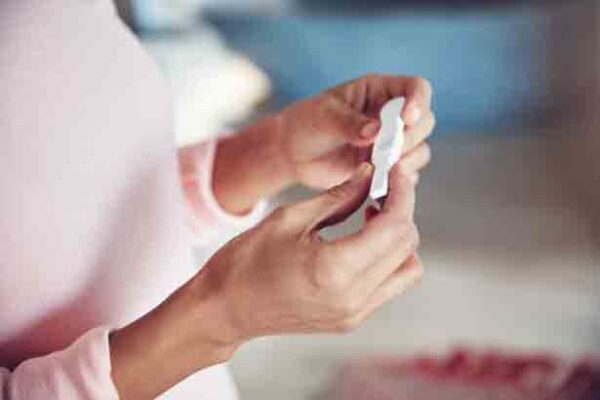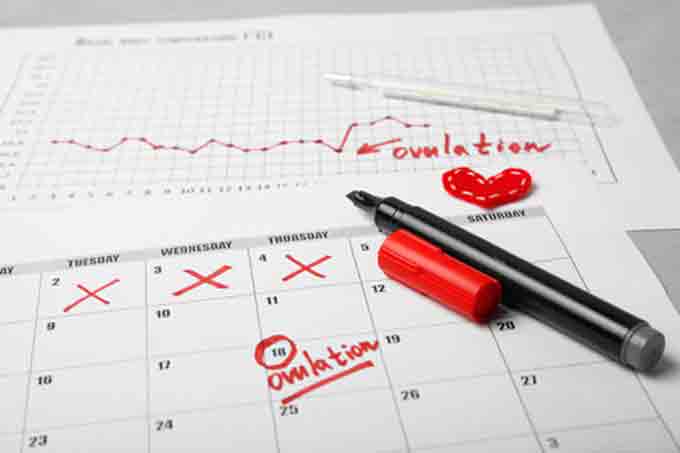Irregular periods make it hard to know your most fertile window and can lead to problems like chlamydia or genital warts if you don’t use protection. The good news is that it’s possible to ovulate without having a period.
This is called anovulation, and it’s often caused by uterine scarring. It can cause no period at all, or a very light period.
1. You’re not ovulating.
Ovulation is a necessary step in the menstrual cycle, and it’s important for fertility. It’s also the prime time for pregnancy, as days-old sperm can fertilize a newly released egg during the fertile window (which lasts from five days before ovulation until one day after).
Women who ovulate normally tend to have regular periods with consistent length and frequency. If you have very short or long cycles, or irregular bleeding, your doctor may suspect ovulatory dysfunction and order a basal body temperature test.
During ovulation, your body’s basal temperature rises in anticipation of a possible egg release. This can be tracked with an app or a basal thermometer that can hone in on small changes in your body temperature, like those caused by ovulation. In addition, a urine ovulation test can be used to determine whether you’re ovulating. The test is drawn about a week after your period would be due, and measures the level of progesterone, which typically rises at ovulation.

2. You’re ovulating.
Your period marks the end of a menstrual cycle and ovulation, so it’s one of the best signs that your body is producing the hormones necessary to conceive. If you’re getting regular periods, this means that your body is ovulating regularly. You can also tell if you’re ovulating by taking your basal temperature (the temperature at rest when you are lying down) with a digital thermometer designed for this purpose and jotting it down every morning as soon as you wake up. You should notice a steady rise in your basal temperature at this time, which is an indicator that you are ovulating, sneak a peek here.
Most women ovulate about 14 days before their next period starts. Knowing when you ovulate, and having sex during this fertile window, increases your chance of becoming pregnant. However, many women have irregular periods or have health issues such as PCOS that affects ovulation. Luckily, it’s possible to get pregnant even with an irregular menstrual cycle.
3. You’re ovulating but not having a period.
It is possible to ovulate without having a period, but it will make it harder to get pregnant. This can happen when the ovulation process is off track for several reasons, including irregular menstrual cycles and polycystic ovary syndrome (PCOS).
When you have a regular cycle, hormones signal your ovaries to start developing an egg. This is contained inside a small structure called a follicle, which has fluid and nutrients to help the egg grow. Usually, the follicle will mature and release the egg.
The most fertile time of the month is about 14 days before your period begins. You can time intercourse during this time if you are trying to conceive. Using at-home ovulation tests is also helpful because they can help you find out when you are most fertile.
But it is not a reliable sign that an egg has been released, because you can have periods without ovulation (called anovulatory bleeding). If the egg isn’t fertilized, the uterus lining will naturally slough off.
4. You’re ovulating but not pregnant.
In a normal menstrual cycle, ovulation happens when an egg is released and fertilized. It usually comes after a period, but it’s possible to ovulate without having a period first or getting a period after ovulation. This is called an anovulatory cycle and is very common for girls with irregular periods.
To ovulate, you need a surge of the hormone LH. This surge causes the follicles to grow and the healthiest one matures into an egg. It also triggers an estrogen surge that thickens the uterine lining. When the egg isn’t fertilized, progesterone levels drop and the lining is shed. This is when you get your period.
The best way to know if you’re ovulating is by tracking your basal body temperature with an ovulation predictor kit or with a calendar. However, if your period is irregular, it can be hard to tell when you’re most fertile. In this case, it’s important to use a condom during sex and to have sex only within 36 hours of detecting an LH surge.




